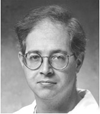 Neo:
What are you trying to tell me? That I can dodge bullets?
Neo:
What are you trying to tell me? That I can dodge bullets?
Morpheus:
No, Neo. I'm trying to tell you that when you're ready, you won't have to.
Judgment in anesthesia, as in all of life, takes unusual forms. While you might think that drug selection/technique are the essence of anesthesia judgment, I believe after thirty years that these choices matter rather less than we think. I am reminded of old studies of psychotherapy that concluded that good therapeutic outcomes correlated with individual therapists more than theoretical "schools" of therapy; that talk therapy is personal. So, perhaps surprisingly, is anesthesia. In my memory, some of the most knowledgeable anesthesiologists were the least capable in the OR. Sometimes it was because they were crippled by their encyclopedic cognitive sets, and sometimes it was because they had no damn common sense. There are two countervailing aphorisms that apply in anesthesia, both taught to most anesthesia residents. First, "if you don't know where you are going, you'll probably end up somewhere else." You have to have a plan going into an anesthetic with a specific set of therapeutic goals and indications (where are you going and why are you going there). The second is "No plan survives first contact with the enemy." You've got to be willing to modify/abandon your first plan when circumstances don't support it. Let me give an example.
I am presented with a truly unfortunate hypotensive late middle aged patient with bad generalized vascular disease who requires anesthesia for an abdominal catastrophe; probably bowel infarct. He has suffered a stroke some years earlier and is institutionalized. He is aphasic, and does not follow commands, but is vigilant and appears scared. Per telephone conversation with daughter, a previous anesthetic one year earlier at another institution presented unclear airway difficulties ("they said they had trouble with the tube" - when will we ever get electronic records!?) Textbook plan A; awake fiberoptic intubation with mild sedation and appropriate limited topicalization. Start out. Midazolam. Clenched teeth; door shut tight. OK. Plan B; NG decompression, rapid sequence induction. Hmmm; succinylcholine contraindicated for peritonitis, but seems unwise to use rocuronium in case matters become ugly. Ditto more midazolam v etomidate. Sux it is. Reassuring words, 2 suckers, NG out, cricoid pressure, a touch of etomidate, 40 of sux. Mouth barely opens; skin/tmj contractures. No direct laryngoscopy here. Push on? Back out? Easy mask airway (don't like this, but a man's gotta do...) no regurgitation past cricoid. Plan C. Flexible fiberoptic/Ovassapian airway. Chin lift (assistant B) cricoid maintained (assistant A). Easy access, tube passes clean... Another victory for the home team. Elapsed time; about 6 minutes. Lowest sat; 96% Changes of plan- hmmm, two, I guess. Aspiration zero. Perspiration zero. Might it have gone different? Sure. If he'd refluxed, I would have fought it off, backed out and regrouped. Plan D? Awake cricothyrotomy or trach, maybe.
Lots of trade-offs. Flexibility (semper gumby!) calculated risks; if I couldn't fight off regurgitation and he had aspirated, I am a dog. He didn't. I'm not. Next time? Who knows? Ahhh, the joys of anesthesia combat. But, I digress (as usual).
A lot of the time, judgment involves a simple go/no go decision. Knowing when to cancel is important. Being able to articulate why you are canceling is vital; how will the patient benefit from surgical delay? Actually, being a politician too, I never cancel; I postpone. That helps clarify how delay will make things better, and it is my responsibility as a physician to define what our goal is in delay, to generate a plan to accomplish that goal, and to implement the plan. I am always willing (eager!) to take charge of the preoperative care once I have interviewed the patient; if the surgeon wants to do it herself, no problem, but I am always willing to put my money (time) where my mouth is. Anyway, that way I know I will get what I think the patient needs. Anybody who does the work knows that canceling requires conviction; there is generally tremendous momentum in the expectation of proceeding to surgery on the part of the patient and surgeon.
On the other hand, I am convinced that half the patients that "cheat" on their NPO instructions eat because they are afraid of just canceling surgery. I never "just do it under local" or any of that. If a patient can't comply with an NPO instruction, they won't comply with any other instructions, and they will put themselves at risk. Which brings me to another issue. We do not work for the patient; patients are not just clients.We as physicians and patients each have our role to play in a complex interaction. Because patients do not always play their part appropriately does not relieve us of the need to play our parts. Anesthesia and medicine are a calling. Just because a patient (and sometimes surgeon!) are willing to proceed despite an avoidable risk (like proceeding with an elective procedure on a full stomach) for convenience, does not absolve the anesthesiologist/physician of responsibility for the consequences of going along with it; so sayeth I.
How about the judgment regarding Your own fitness, doctor? Will you work with the flu or a fever? Will you work exhausted? Will you do a case beyond your current skills? When does "stretching" beyond your comfort zone become taking a chance? Every morning I wake up and do a "gut check." Most mornings that involves a brief instant of thankfulness as my feet hit the floor and I pad off to pee and brush my teeth. On rare days it's obvious I'm not fit (nausea, vertigo, vomiting...). Two decades ago, when my mom was dying, I asked myself the question "am I fit" every morning (my mom and I were close); but that's a story for a different day (perhaps...)
It's all about judgment; lines and tubes are easy. (after a while) Even when you know what to do, doing it can be hard (vigilance at 3AM? setting those alarm limits tight?)
Semper Gumby!
 Mitch Keamy is an anesthesiologist in Las Vegas Nevada
Mitch Keamy is an anesthesiologist in Las Vegas Nevada
 Andy Kofke is a Professor of Neuro-anesthesiology and Critical Care at the University of Pennslvania
Andy Kofke is a Professor of Neuro-anesthesiology and Critical Care at the University of Pennslvania
 Mike O'Connor is Professor of Anesthesiology and Critical Care at the University of Chicago
Mike O'Connor is Professor of Anesthesiology and Critical Care at the University of Chicago
 Rob Dean is a cardiac anesthesiologist in Grand Rapids Michigan, with extensive experience in O.R. administration.
Rob Dean is a cardiac anesthesiologist in Grand Rapids Michigan, with extensive experience in O.R. administration.
RE: "Hours of Boredom"... I practice in a small hospital with three ORs and several surgeons who are fairly busy. In this particular location, I do not have the pleasure of working alongside an anesthesiologist. However I have worked with anesthesiologists in many different settings. The responsibilities, concerns and daily issues are the same for us CRNAs who work independantly with surgeons, as they are for anesthesiologists who work by themselves or who supervise others. Both CRNAs and MDAs have human weaknesses and bad days. We all know those MDAs and CRNAs with whom we would choose to entrust the lives of our own families.
What makes these providers good at what they do has as much to do with compassion and vigilance as it does knowledge and skill. CRNAs are required to read the same texbooks and demonstrate mastery over the same knowledge and skills as do anesthesiologists. There are no studies that show outcomes are better with one provider over another. So why must there be a need to consider the differences between us? The bottom line is the standard of care is the same, no matter which board has licensed the provider. Hopefully the provider is vigilant and is genuinely concerned with the patient's well-being.
Posted by: Ty | July 17, 2024 at 06:49 PM
Vigilance and compassion are not the exclusive provinces of MD anesthesiologists, it is true, and I will take a diligent and vigilant CRNA over an inattentive MD anesthesiologist every time. Having said that, CRNA's and MD's may have read the same anesthesia textbooks, but my perspective on anesthesiology is a medical perspective; as I have noted on more than 1 occasion, an ICU nurse can render a patient unconscious with a diprivan drip and some vecuronium, so what's the big deal. What an MD anesthesiologist ought to be providing is comprehensive medical management, something that a CRNA is not trained to do. It is too bad that this whole line of discussion devolves to the economic/profane so quickly. I have even found CRNA's on line attacking anesthesia assistants (or whatever they are called) that some "enterprising" MD anesthesiologists are training to give anesthetics cheaper than CRNAs (so they can make more money?). The better argument than CRNAs are equal to MDAs, is that peri-operative medical management has not yet been proven to improve outcome in many categories of cases. Trust me, when I am clipping a cerebral aneurysm in an insulind dependent diabetic with coronary disease who has DI, I'm using a lot of my medical training from IM and my critical care fellowship. I do not practice in the Anesthesia care team mode on purpose; I could make more money, but I always felt the CRNAs with whom I worked to be resentful and some of the MD anesthesiologists became, well lazy... it spoiled the colleagial atmosphere. As I have told my state legislature in the past, perhaps the CRNA's are just a lot smarter than me; I spent 13 years in college, medical school and clinical training, and am still intellectually challenged. Maybe I'm just slow, but maybe I am trained to see deeper into the physiologic and medical situation. What I will tell you is that although I see many loose ends in patients that lazy docs and lesser trained nursing colleagues don't see, I have no data to prove it affects outcomes.
Thanks for your thoughts; enjoy your practice...
Posted by: mkeamy | July 17, 2024 at 10:09 PM
It is unfortunate that the argument ends up how you have so stated. It seems to always come back to an assumption that more years in school equates with more retention of useful knowledge, with the further differentiation of "medical knowledge" from nursing education. Again, the textbooks are the same and the content in them remain the same.
Your reference to ICU nursing is counterproductive to your argument, as there are too many professionals out there who know the reality of what goes on in the SICU/CVICU. In my experience, I had to possess enough understanding of "internal medicine" to interpret invasive monitoring, titrate vasoactive substances, manage controlled ventilation, administer and document response to countless medications and so on. Yes these are tasks, and the "big picture" takes some time to come into focus, but as I recall medical students and most residents were not even permitted in these units without direct supervision, and had limited if any similar experience. They often asked me to explain to them what they were looking at. Most physicians I talk with admit to getting the perspective that you describe sometime after residency.
Yes there is a lot of learning to be had during the CRNA curriculum, and not everyone is given the same assurance of pass/fail. I had a limit of 6 credit hours of "C" grade in my program. But when I provide quality anesthesia for aneurysm clippings, hernias and everything in-between, I am glad for the academic rigor of my program. The rewards of seeing my patients comfortable and satisfied postoperatively are worth it.
Finally, there is no need to try and equate CRNAs with MDAs. The service of anesthesia is worth whatever society decides it to be worth. I can't think of any other profession that deserves more consideration given its responsibilities.
Posted by: Ty | July 18, 2024 at 01:15 PM
I apologize for this being left off....
Thank you for the conversation and best wishes to you and to everyone who reads this board.
Ty
Posted by: Ty | July 18, 2024 at 01:19 PM
I found your thoughts in the paragraph disucssing the patient not just being a client interesting. I'm an anesthesiologist and chair of our hospital's ethics committee. I've come across this idea a lot. In our medical system, we seem to forget the humanity of the physician (except his or her fallibility!). As physicians we are like pilots: our job is to travel with you towards a certain goal. What's often lost is the fact we travel with you. We place ourselves at risk with you. It may not be as obvious as with a pilot in flight, but I assure you we risk a piece of ourselves with every encounter. Consider living with the thought you were responsible for someones death (or life!). Or being confronted with reminders of your own mortality on a daily basis. Our humanity as physicians is part of the process. WWW.MORTALITYANDFRIENDS.BLOGSPOT.COM
Posted by: Doctor of Record | January 16, 2024 at 09:04 PM
CRNAs are required to read the same texbooks and demonstrate mastery over the same knowledge and skills as do anesthesiologists. There are no studies that show outcomes are better with one provider over another.
Posted by: ED drugs | September 19, 2024 at 08:00 AM